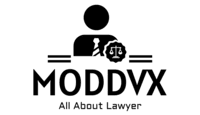- Homepage
- Employment Lawyer
- Top 10 Questions to Ask Your Employment Lawyer Before Filing a Claim
Top 10 Questions to Ask Your Employment Lawyer Before Filing a Claim
In today’s dynamic workforce, employment disputes are not uncommon. Whether it’s discrimination, harassment, wrongful termination, or wage disputes, employees may find themselves facing legal challenges in their workplace. When considering filing an employment claim, seeking guidance from a knowledgeable employment lawyer is paramount. This legal professional can provide valuable insights into the intricacies of employment law and help you navigate the complexities of the legal system. Here, we delve into the essential aspects to discuss with your employment lawyer before initiating a claim.
Understanding the Legal Landscape
The realm of employment law encompasses a vast array of regulations, statutes, and precedents that govern the employer-employee relationship. Before embarking on the journey of filing a claim, it’s crucial to gain a comprehensive understanding of your rights and obligations under the law. An employment lawyer can elucidate the pertinent legal principles applicable to your situation, empowering you to make informed decisions.
Assessing the Viability of Your Claim
Not all workplace grievances warrant legal action. Before proceeding with a claim, it’s imperative to ascertain its viability. An experienced employment lawyer can evaluate the merits of your case based on relevant legal standards and precedents. Through a thorough examination of the facts and evidence, your lawyer can provide an objective assessment of the likelihood of success in pursuing a claim.
Gathering Evidence and Documentation
Evidence plays a pivotal role in substantiating claims in employment disputes. From emails and performance evaluations to witness statements and company policies, compiling relevant documentation is essential to bolstering your case. Your employment lawyer can guide you through the process of gathering and preserving evidence, ensuring that you have a compelling case to present.
Exploring Alternative Dispute Resolution Mechanisms
Litigation is not the only avenue for resolving employment disputes. Alternative dispute resolution mechanisms, such as mediation and negotiation, offer parties an opportunity to reach amicable settlements outside the courtroom. By engaging in constructive dialogue facilitated by a neutral mediator, you may be able to achieve a resolution that meets your interests and avoids protracted litigation.
Understanding the Costs and Financial Implications
Legal proceedings entail costs, both financial and emotional. Before commencing a claim, it’s essential to discuss the potential costs and financial implications with your employment lawyer. From attorney fees and court filing fees to expert witness expenses, understanding the financial aspects of pursuing a claim is crucial for making informed decisions.
Navigating Procedural Requirements and Deadlines
Employment claims are subject to various procedural requirements and deadlines imposed by statute or court rules. Failure to adhere to these requirements can result in the dismissal of your claim or forfeiture of important rights. Consulting with an employment lawyer can ensure that you comply with procedural formalities and meet critical deadlines, thereby safeguarding your legal interests.
Managing Expectations and Anticipating Outcomes
When contemplating legal action, managing expectations is essential. While the prospect of a favorable outcome is enticing, it’s essential to be realistic about the potential risks and uncertainties involved. Your employment lawyer can provide insights into the range of possible outcomes and help you develop a strategic approach tailored to your objectives.
Considering the Long-Term Implications
The repercussions of pursuing an employment claim extend beyond the immediate legal proceedings. Whether it’s the impact on your professional reputation, future career prospects, or personal well-being, considering the long-term implications of your decision is paramount. Your employment lawyer can offer guidance on weighing the potential risks and benefits and assist you in making informed choices that align with your long-term interests.
Exploring Remedies and Relief Available
In employment disputes, remedies and relief sought may vary depending on the nature of the claim and applicable legal principles. From monetary damages and injunctive relief to reinstatement and policy changes, understanding the full spectrum of remedies available is essential for formulating an effective legal strategy. Your employment lawyer can elucidate the available options and advocate for the remedies that best serve your interests.
Securing Legal Representation and Support
Ultimately, securing competent legal representation is critical to navigating the complexities of employment law and achieving a favorable outcome in your case. An experienced employment lawyer can serve as your advocate, advisor, and ally throughout the legal process, providing invaluable support and guidance every step of the way.
FAQS
1. What types of issues can I consult an employment lawyer about? Employment lawyers handle a wide range of workplace-related issues, including discrimination, harassment, wrongful termination, wage and hour disputes, retaliation, and employment contract disputes, among others.
2. How do I know if I have a valid employment claim? A valid employment claim typically involves a violation of federal or state employment laws. Consulting with an employment lawyer is the best way to determine the validity of your claim based on the specific facts and circumstances of your situation.
3. What evidence do I need to support my employment claim? Evidence may include emails, performance evaluations, witness statements, employment contracts, company policies, and any other documentation relevant to your claim. Your employment lawyer can advise you on the types of evidence needed to strengthen your case.
4. Can I resolve my employment dispute without going to court? Yes, alternative dispute resolution mechanisms such as mediation and negotiation offer parties an opportunity to resolve employment disputes outside of court. Your employment lawyer can explore these options and help you determine the best course of action.
5. How much will it cost to consult an employment lawyer? Many employment lawyers offer initial consultations either for free or at a reduced fee. During the consultation, you can discuss the lawyer’s fee structure, payment options, and whether they work on a contingency basis.
6. What is the statute of limitations for filing an employment claim? The statute of limitations varies depending on the type of claim and jurisdiction. It’s essential to consult with an employment lawyer promptly to ensure that you do not miss any filing deadlines.
7. Will I have to go to court if I file an employment claim? Not all employment claims go to trial. Many are resolved through settlement, mediation, or arbitration. Your employment lawyer can advise you on the likelihood of litigation based on the specifics of your case.
8. How long will it take to resolve my employment claim? The timeline for resolving an employment claim depends on various factors, including the complexity of the case, the court’s docket, and the willingness of the parties to negotiate. Your employment lawyer can provide an estimate based on these factors.
9. What are the potential outcomes of my employment claim? Potential outcomes may include financial compensation, reinstatement, policy changes at your workplace, and other forms of relief. Your employment lawyer can discuss the possible outcomes based on the specifics of your case.
10. How do I choose the right employment lawyer for my case? When selecting an employment lawyer, consider factors such as their experience, expertise, track record of success, communication style, and fee structure. It’s essential to choose a lawyer whom you feel comfortable working with and who has the skills and resources to effectively represent your interests.
Conclusion:
Before filing an employment claim, engaging in thorough discussions with your employment lawyer is indispensable. By asking pertinent questions and exploring key considerations, you can gain clarity, confidence, and peace of mind as you embark on the path to seeking justice and vindicating your rights in the workplace.


